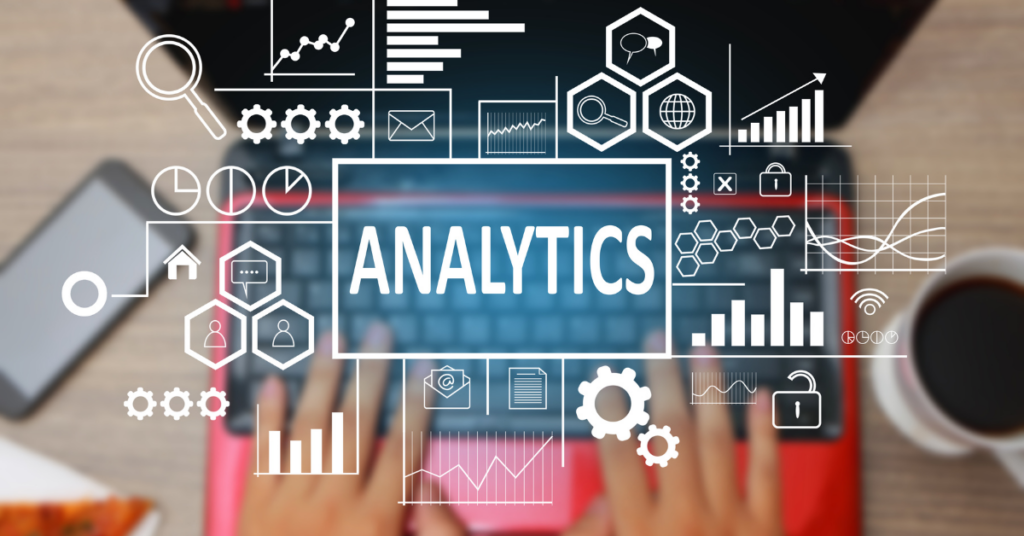Top 10 Skills Required for Data Analyst: Your Guide to Success

- Frequently Asked Questions
According to the US Bureau of Labor Statistics, data analysts in the US earn an average annual salary of $103,500, reflecting the high demand and value of this profession. In 2022 alone, the industry welcomed 168,900 new data analysts, showcasing its expansive growth. For those embarking on this career path or aiming to elevate their expertise, understanding and acquiring the essential skills required for data analyst is fundamental. This blog, therefore, aims to unravel these critical high-income skills, underscoring their role in carving out a successful and rewarding career in this field.
In this blog, you will learn:
- Top 10 Skills Require for a Data Analyst
- Proficiency in Statistical Analysis and Mathematics
- Expertise in Data Visualization
- Mastery of Data Cleaning and Preparation
- Knowledge of Programming Languages
- Understanding Machine Learning Techniques
- Learning Econometrics
- Knowledge of Microsoft Excel
- Critical Thinking and Analytical Reasoning
- Strong Business Acumen
- Excellent Communication Skills
- Frequently Asked Questions
Top 10 Skills Required for Data Analysts
If you are considering a career in data analysis, then having a set of skills is mandatory for success. Here is a list of the top 10 essential skills that any aspiring data analyst must have in their arsenal:
1. Proficiency in Statistical Analysis and Mathematics
A robust foundation in statistics and mathematics is one of the essential skills required for data analyst. This expertise equips them to interpret data with precision, ensuring that their insights are reliable and actionable. For instance, understanding statistical methods like regression analysis or Bayesian probability enables analysts to make accurate predictions and comprehend complex data sets. Tools like Matlab, SAS, or SPSS, are often used for these purposes.
2. Expertise in Data Visualization
The ability to effectively visualize data is one of the more high income skills aspiring data analysts can develop. It transforms complex data sets into understandable visual formats like graphs, charts, and dashboards. Tools such as Tableau, Microsoft Power BI, etc., play a significant role here. By presenting data visually, analysts can communicate intricate details in a more easy-to-digest manner. Moreover, this expertise not only aids stakeholders in quickly grasping insights but also facilitates more informed decision-making.
ALSO READ: Top 6 Advantages of Data Science Skills for Career Advancement
3. Mastery of Data Cleaning and Preparation
Data cleaning and preparation are foundational in the array of skills required for data analyst. This skill involves rectifying or removing incorrect, corrupted, incorrectly formatted, duplicate, or incomplete data within a data set. This ensures the accuracy and quality of data—which is paramount for any meaningful analysis, and tools like Python’s Pandas library, SQL, etc., for database management are crucial in this phase. Clean data is easier to work with and significantly more reliable, laying the groundwork for effective analysis. Thus, in the evolving domain of data analyst roles, this skill has become indispensable for ensuring the integrity and usability of data in any project.
4. Knowledge of Programming Languages
In the toolkit of skills that a data analyst requires is proficiency in programming languages like Python and R. Data analysts prefer Python for its simplicity and versatility. In a 2022 study, Python was found to be the most-used tool among data scientists around the world. It is equipped with libraries such as NumPy for numerical computations and Matplotlib for visualization. Thanks to these features, it is a one-stop solution for many data-related tasks. On the other hand, R is renowned for its statistical analysis capability. Mastering these languages can significantly enhance your data analyst career.
ALSO READ: Anomaly Detection: Why It’s Important for Data Scientists
5. Understanding Machine Learning Techniques
A solid grasp of machine learning techniques is rapidly becoming a pivotal part of the skills required for data analyst. This knowledge enables analysts to step beyond traditional analysis and enter into the realm of predictive analytics and advanced data modeling. For instance, using Python’s Scikit-learn library, a data analyst can implement machine learning algorithms for classification, regression, clustering, and more. Understanding these techniques enables the creation of predictive models that can forecast trends and patterns, thereby providing invaluable insights for decision-making. This skill opens up opportunities for more advanced analysis and elevates the roles and responsibilities in a data analyst career, making it one of high-income skills in today’s data-driven industry.
6. Learning Econometrics
Econometrics, the application of statistical methods to economic data, is increasingly becoming a vital part of the skills required for data analysts, especially in finance and economic research roles. It involves using tools like time series analysis, panel data analysis, and prediction models to interpret and forecast economic trends. Analysts with econometrics knowledge can analyze complex economic data and elevate their role in strategic decision-making. This expertise allows analysts to provide deeper insights into market trends, consumer behavior, and financial forecasting, making it a valuable skill to learn. For those pursuing a data analyst career in economics or finance, understanding econometrics is definitely a high-income skill.
ALSO READ: Learn Data Analytics Online: A 7-Step Guide to Success
7. Knowledge of Microsoft Excel
Microsoft Excel is a fundamental tool in the arsenal of data analysis skills. Despite the emergence of advanced tools, Excel’s versatility in data organization and analysis is unparalleled for many basic tasks. It offers a range of functionalities, from simple data entry to complex functions like Pivot Tables, VLOOKUP, etc. For those beginning a data analyst career, proficiency in Excel is often the first step because it provides a strong foundation in data handling.
8. Critical Thinking and Analytical Reasoning
Critical thinking and analytical reasoning are essential skills required for data analysts. This skill set involves assessing, dissecting, and interpreting data logically and objectively. For example, when faced with a large data set, a data analyst must be able to identify patterns, anomalies, and correlations. This requires diving deep into the data to understand underlying causes and implications. Tools like SQL for querying and Excel for data manipulation can aid in this analytical process. For data analyst roles, these skills are not just beneficial; they are crucial for making informed decisions.
ALSO READ: 5 Ethical Aspects for Data Science Professionals to Consider
9. Strong Business Acumen
Having solid business acumen is undeniably a critical skill required for a data analyst. This ability extends beyond simple data interpretation; it encompasses understanding the broader business context and how to leverage data to make effective business decisions. For instance, a data analyst specializing in retail must grasp market trends, customer behavior, and sales cycles. Consequently, this deep understanding ensures that their analyses align accurately with specific business objectives. Additionally, tools offered by the Customer Relationship Management (CRM) software or industry-specific analytics platforms can be instrumental in honing this acumen. For a data analyst, therefore, possessing this skill is invaluable. It effectively bridges the gap between raw data and strategic business decisions, categorizing it as a high-income skill in the corporate sector.
10. Excellent Communication Skills
Effective communication skills are also very important for a data analyst. They are crucial to clearly and concisely articulate complex data findings. Whether through reports, presentations, or visual dashboards, conveying insights to nontechnical stakeholders is essential. They ensure successful collaboration with different teams and guarantee that data-driven insights are comprehensible and actionable. Thus, the ability to communicate effectively is a core component of the data analysis skills essential for success in this field.
ALSO READ: 4 Factors to Help You Determine the Best Course From a Data Science Course List
Frequently Asked Questions
1. What Makes Data Analysis Skills Critical in a Data Analyst Career?
Data analysis skills, in essence, are the core of a data analyst’s job. They enable the extraction of meaningful insights from raw data. Additionally, these skills are crucial for driving business decisions.
2. How do Data Analyst Roles Evolve With Experience?
Data analyst roles often evolve with time and experience. They may shift toward more strategic positions, such as data strategist, offering one an opportunity to specialize in specific industries or different types of analysis.
3. How Does Business Acumen Enhance a Data Analyst’s Effectiveness?
Business acumen helps in contextualizing data. It ensures that analyses are relevant to business goals. Furthermore, it aids in communicating findings in a business-friendly manner.
4. Can Strong Communication Skills Compensate for Technical Shortcomings?
While strong communication skills are vital, they cannot fully compensate for technical shortcomings. However, they do enhance the overall effectiveness of a data analyst. Additionally, they are the key to promoting collaborative environments.
If you are considering a career in data analysis and want to know in detail about the skills required for data analyst, consider joining online data science courses and stand out from the crowd.
Write to us at content@emeritus.org











































